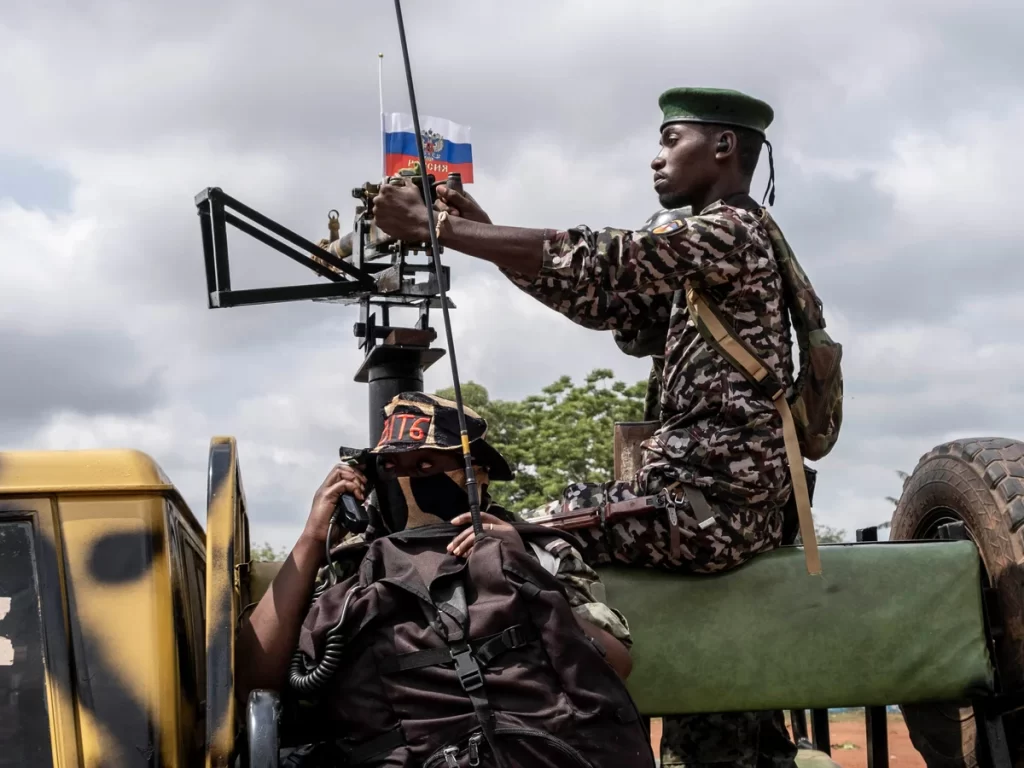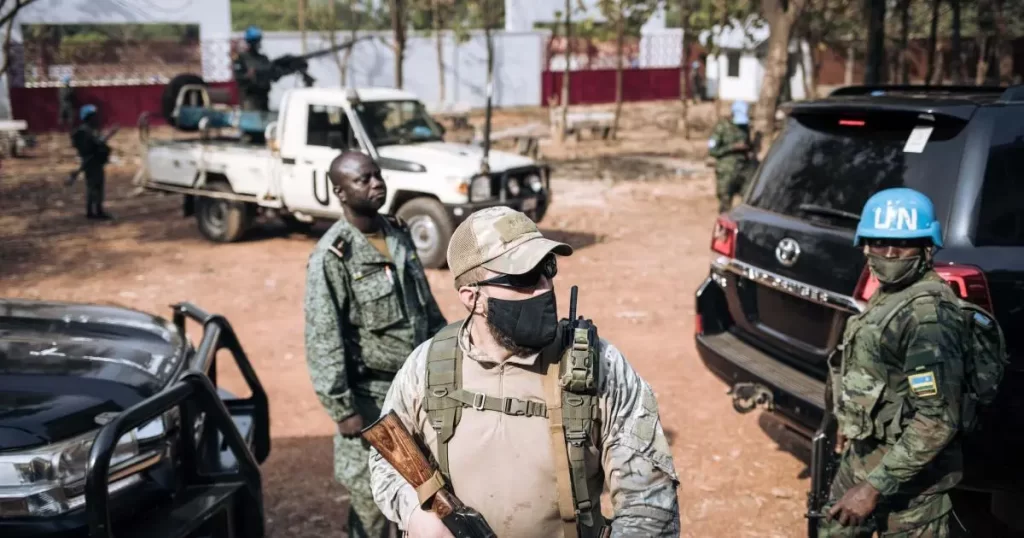A coalition of armed groups in Mali’s predominantly Tuareg north claimed on Saturday that it had killed dozens of government soldiers and Russian mercenaries from the Wagner group during a fierce battle near the border with Algeria. This significant engagement reportedly involved heavy casualties on both sides and the destruction of multiple vehicles.

Videos circulating on social media depicted the aftermath, showing the lifeless bodies of several white men and Malian soldiers scattered on the ground, surrounded by destroyed vehicles. The footage, although unverified, provides a grim visual of the reported clashes.
The Malian army, in a statement issued on Friday night, confirmed that two soldiers had been killed and ten wounded in a rebel attack. The army also claimed that it had managed to kill around 20 rebels and destroy several of their vehicles. Despite these claims, independent verification of the exact details and casualties remains elusive.
Mohamed Elmaouloud Ramadane, spokesman for the pro-independence CSP-DPA coalition, provided a detailed account of the battle. He stated that a two-day conflict erupted on the outskirts of Tinzaouaten village, with the rebels managing to “routed the entire column of Malian army and Russian mercenaries.” He further claimed that the enemy had suffered substantial losses in terms of both lives and equipment, including dozens of dead and wounded soldiers. Additionally, Ramadane mentioned that some Malian soldiers and Wagner mercenaries had surrendered to the Tuareg fighters.

If the claims are accurate, this would represent the most significant setback inflicted on Wagner mercenaries by Tuareg rebels in Mali to date. The Wagner group, a Russian private military company, has been involved in various conflicts across Africa, often supporting government forces against insurgents and rebels.
Rida Lyammouri, a senior fellow at the Policy Center for the New South, a think tank based in Morocco, commented on the implications of the battle. He suggested that the conflict sends a strong message to the Malian government, indicating that recapturing and controlling northern regions would be more challenging than anticipated. Lyammouri also warned that this setback could potentially lead to increased attacks against civilians by both government forces and Wagner mercenaries.
The ongoing conflict in Mali continues to be a source of instability in the region, with frequent clashes between government forces, supported by international mercenaries, and various rebel groups vying for control and autonomy.



